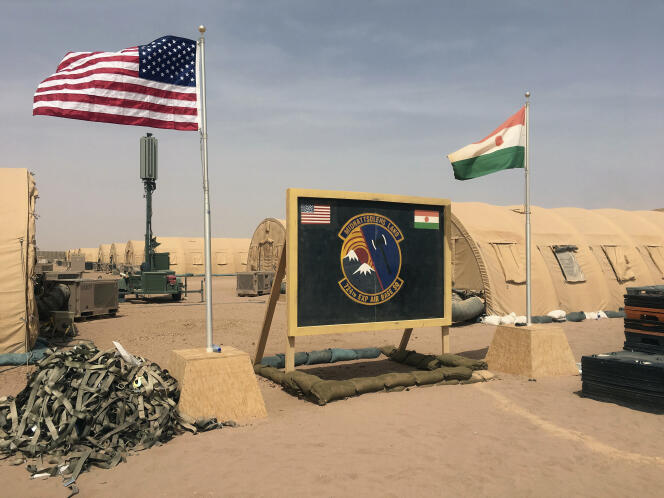


Tensions between the Niger's putschists and France – whose 1,500 troops in the country the junta suspects of being a Trojan horse – has almost overshadowed the presence in the country of another Western military power and ally of France: the United States.
Among the Sahel country's Western partners, which also include Germany and Italy, the Americans, with a force of just over 1,000 men, are solidly implanted at Niamey airport and at their base in Agadez, which is the US's second-largest base on the entire African continent. Additionally, the US has a discreet presence in several places around the country. However, since the coup on July 26, the ruling junta, which has called itself the National Council for the Safeguard of the Homeland, has not made any anti-American statements.
In an op-ed published in the Washington Post on August 3, Mohamed Bazoum, the overthrown president, who is being held by the junta, turned his attention to Washington. "The United States, the African and European Unions, and the Economic Community of West African States (ECOWAS) have been loud and clear: This coup must end," wrote the deposed president, who has retained his own means of communication. The absence of any specific mention of France sent a clear message: No one in Niger would think it wise to publicly appeal to Paris for help. France is disqualified in the eyes of local opinion and seen as a red rag by the putschists, a part of the problem rather than the solution.
In this context, Washington is using its own influence. Niger's central position between North Africa and West Africa has made it an important platform in the American fight against jihadist groups. It has seven borders, including one with Libya, where a contingent from the Wagner Group is deployed, and one with Algeria, a country with which Washington is trying to forge closer ties. It also borders Nigeria, which is both the major West African regional power and a pool for jihadist groups to recruit from. Washington wants to make sure the coup doesn't pave the way for a falling out with the West and the arrival of Wagner's Russian paramilitaries.
Antony Blinken, the US secretary of state, who visited Niger in March, suggested in a BBC interview released on Tuesday, August 8, that while President Bazoum's forced departure had not been "instigated by Russia or Wagner," the mercenary group "tried to take advantage of it." Bazoum had warned in the Washington Post that "the entire central Sahel region could fall to Russian influence via the Wagner Group."
You have 46.65% of this article left to read. The rest is for subscribers only.
